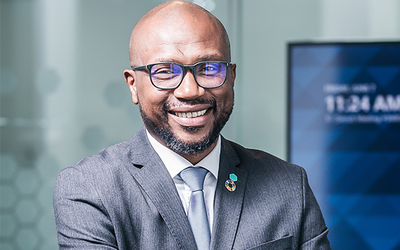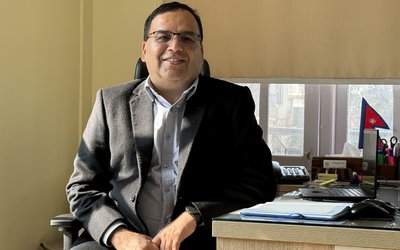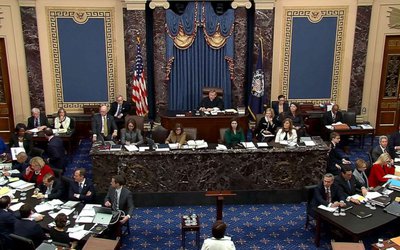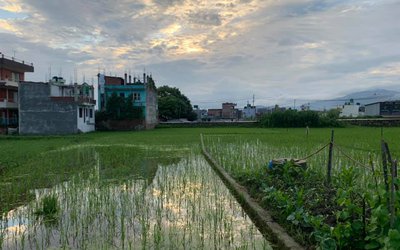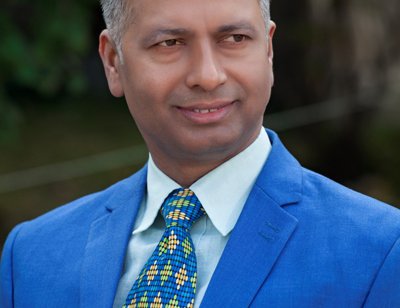
There are many private education institutions providing education at different levels. Where does Kanjiroba National School stand?
We consider ourselves a pioneer national school to establish international relations with various education institutions around the world although there are a few other schools doing that too. With the partnership of various international schools and institutions of education, we have been running student exchange programs. We want to strengthen and expand such relations in the future.
How many education institutions are under your management?
We have Kanjiroba National School with 1 to 10, Kanjiroba Higher Secondary School 10+2, Kathmandu Pragyakunj School in Baneshwor, we are teaching play group to 7 and it will upgraded up to 10. Similarly, Kathmandu Don Bosco College teaches undergraduate and graduate courses, BBA, MBA along with EMBA.We have a partnership exchange programs with foreign colleges and international schools as well.
Can you name the schools?
Kanjirowa National H S School, Koteshwar- working in Scinece, Technology, Engineering and Mathmatics (STEM) project expecially in building drones and its operation Bullis School, Marryland, USA and Foxcroft School, Virginia, USA.
On top of it, experts from various countries come to Kanjirowa and share their expertise, train teachers and assist in teaching learning.
We are in partnership with a school in Maryland and Washington DC in USA, United Kingdom. We are also working to further strengthen our exchange programs with other schools as well. This will help to improve the understanding of each other's cultures. We are now exploring opportunities with education institutions in Thailand. We are visiting Thailand in between Dashain and Tihar.
How about the exchange program of Don Bosco?
So far as Kathmandu Don Bosco College is concerned, it offers programs in MBA, EMBA and BBA works with Angelo State University, Texas, USA in 2+2 program in BBA, Stratclyde Business School, UK in 2+2 program in BBA, SolBridge International Business School, South Korea in 2+2 program in BBA and 1+1 program in MBA.
Do international students also visit your school? How frequent is that?
Under the exchange programs, students and scholars from other countries are also visiting our school. We do have regular visitors from other countries as well. A visitor from Israel came to our school for a short period. Another Swiss visitor, who is an education expert, is now with our school as a visitor for a month. A professor of Angel State University is coming in Don Bosco College in November as a Fulbright Scholar.
How is the state of teaching and learning in your school?
The state of public schools is pathetic but private schools have a bit better teaching and learning environment. It does not mean that all private schools are good but they are better than the public schools. I have travelled to more than 20 countries visiting schools. My impression is that those countries developed because they invested quite a big money in education. There is the need to have good class rooms and teachers. In totality, we are weak. However, our schools have made every effort to make our students strong.
You are now an executive member of HISAN. How do you see the state of other schools?
The involvement of private sector has helped increase the quality of higher secondary education in Nepal. Their investment helps to make the students more competitive. If you look at two decades ago, there were a very few students who showed guts to apply to international colleges in USA, Australia or England. However, many students are applying now to study in such universities. We should be happy that they all are from private schools. But I can’t say whether it is good or not, a large number of students are not returning to Nepal.
How about HISAN?
HISAN is an association of private schools established with an aim to provide quality education to all and encourage students to pursue their education in Nepal. Out of 3800 higher secondary schools, 900 higher secondary schools are affiliated to HISAN. Our contribution is remarkable in the education sector.
How do you see the private sector investment in technical and science education?
Their investment is very low. There is the need to invest more in vocational education. After +2, we need to focus on vocational education. There is the need to invest more money in setting up lab and other facilities. The government should invest money. The students and parents also do not have the vision towards vocational education. There is the need to change the mindset.
How is the investment climate?
There is no social protection for the private sector investment in education. The rate of return is also low, with 25 to 30 percent return. Some continue to invest because they have made heavy investment earlier. Even public impression is also not positive towards private schools. Public expectation is high and income is low. We charge around Rs. 3000.00 a month but the parents oppose it because they too are poor.
Don’t you think the money is high?
Although the amount of money is very nominal, the parents are poor and they see it as a huge money. People think private schools are expensive. As we don’t receive anything from government, we have to depend upon the fees for all the expenditure of the colleges. Salary, house rents, library and other incremental covers entire fees. Compared to the cost, the amount is still low.
Why is there the opposition then?
There is a tendency in Nepal to destroy any sector which is doing well. There is a mindset to destroy good institutions. Guardians and others should realize that schools are the property of society and people. However, there is no sense of ownership.
How do you ensure the quality of education?
Knowledge is important in education. There is a lot concern on results. We are more concerned on the knowledge and quality of education. Some institutions are focusing on the results.
How do you see the recently introduced grading system in SLC? Is it true all students secure pass mark?
There are certain provisions in the present grading to be eligible to admit at +2. The students who secured E or below a certain percentage are not eligible for admission at higher secondary level. Such students need to reappear in the examination for further study. However, there is a misconception in society that everyone will be admitted in the school. As per the results, over 150,000 students were not eligible for +2. They can join for vocational education. As large numbers of students cannot study science, they can still study technical education through the vocational education. The present grading system has also many barriers as there are criteria for science, education, management and humanities. It is wrong to say that all the students who appeared in the exam secured pass mark. SLC results of last year and this year are not different. One needs to secure high marks to get admitted in science. There was a chance exam in the past and it is also there now.
How do you see the rising number of colleges and schools affiliated to foreign university?
There are many colleges affiliated to foreign universities from US, United Kingdom, India, Australia, Singapore, and Thailand. In the recent days, there are a number of colleges now affiliated to Malaysia. Annually, a Nepali student has to pay Rs.100,000 to 150,000 to complete the master's degree. For just to hold the examination and affiliation, why do we need to pay such a huge money?
Why is this so?
Since 1997, Nepalese Universities have not issued affiliation to new colleges. Pokhara University and Purbanchal issued affiliation for a few colleges later on. However, universities have completely stopped affiliation to Humanities, Management and Education for private colleges. To have a few such international colleges may be justifiable to share their curriculum but I don’t see any justification for such a large number of colleges. Foreign universities came as alternatives. Although there are a half dozen universities, they are issuing affiliation only to the medical and engineering colleges. So far as humanities, management and education are concerned, there are shortcomings. As the number of foreign university affiliated college increases, a large sum of foreign currency is draining out to pay exam fees and other amenities. The government needs to control this trend. We are getting US$ 500 a month from a Nepalese worker from Gulf, we are sending same amount of foreign currency as exam fees for foreign university.
At a time when large numbers of Nepalese students are leaving the country, colleges affiliated to foreign university claim that they are supporting Nepal?
My view is that we don’t need so many colleges. We may require a few. There is the need of justification for spending huge money just for the sake of examination. Given affiliation, we can prevent foreign currency leaving the country. My concern is there is the need to stop foreign currency departure from the country. This is the issue up for moral discussion.
- MELAMCHI WATER SUPPLY: No Interruption During Monsoon
- Jun 25, 2025
- KOREAN RETURNEES: Successful Integration
- Jun 25, 2025
- UPPER TRISHULI-1: Engaging With Local
- Jun 25, 2025
- IME GROUP: Twenty Five Years Of Journey
- Jun 24, 2025
- NEPAL’S AIR POLLUTION: A Growing Health Concern
- Jun 24, 2025

